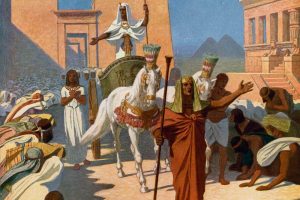The Second Beginning


The Second Beginning

Shalom,
This Shabbat we will read the second Torah Portion in the Book of Genesis – Noah.
Noah represents the “Second Beginning” of the creation, which occurred after the end of the Flood, when Noah and other seven people (Noah and his wife, their three sons and their wives) plus all the animals and plants they had in the ark “restarted” life on Planet Earth.
Humanity got a second chance…

This Shabbat is called in Hebrew – שבת כללית Shabbat Clalit, meaning an ‘Arch-Shabbat’, telling us that it has a much stronger than usual impact on the coming year than a regular Shabbat.
The reason that ‘Shabbat Noah’ has this unique quality is because it is the first Shabbat after ‘Shabbat Bereishit’, which was actually an event celebrated during the High Holidays since they began with Rosh Hashanah about a month ago.
In fact ‘Shabbat Noah’ is the very first Shabbat that follows the six-day work week.
During the week there are no holidays and we are busy in the physical world for a full six days.
And then comes the spiritual rest.
This connects us to our Torah portion, because the name of the portion, Noah – נח is associated with the word מנוחה menukha or “rest”.

Noah actually is already mentioned in the first Torah portion, (Genesis 5, 29), where it has a different association.

‘And he called his name Noah, saying: ‘This same shall comfort us in our work and in the toil of our hands, which cometh from the ground…’
Thus, the name Noah (pronounced in Hebrew – NOAKH) implies – to comfort and in modern Hebrew the word ‘noakh’ is used as an adjective/adverb for ‘comfortable/comfortably’.
Noah has a special connection with Modern Hebrew.
The word Noah is used in a Hebrew expression, which relates to one’s weakness in spelling.

Noah with seven mistakes
In Hebrew the word Noah is written using only two letters:

But, it is possible to write it with many mistakes, while the sound remains the same – Noah.
For instance:
נואך
So, the expression

means that those who spell poorly, manage to write even the short word נח, which only has two letters, with seven mistakes…

Noah, appears to be the first winemaker.
וַיָּ֥חֶל נֹ֖חַ אִ֣ישׁ הָֽאֲדָמָ֑ה וַיִּטַּ֖ע כָּֽרֶם
וַיֵּ֥שְׁתְּ מִן הַיַּ֖יִן וַיִּשְׁכָּ֑ר
Noah, a man of the soil, was the first to plant a vineyard.
He drank of the wine and became drunk…
(Gen. 9: 20-21)
In regards with this, Arnold Ehrlich* in his book “The Bible According to Its Literal Meaning ” offers the following interesting interpretation to this episode and the meaning of comfort associated with the name Noah:
Now the rest workers have is not really rest unless they can forget their toils.
And there is no way to forget one’s toils better than with wine, as it says (Prov 31:7), “Let them drink and forget their poverty, and put their troubles out of mind.”
And this is the reason for making Kiddush on wine on Shabbat and Yom Tov, since when a person drinks wine, he forgets his toils and his rest is rest…
Noah was the first person to plant a vineyard.
Therefore, scripture offers a midrash on his name based upon the fruit of the vine, which was (first) planted by his own hands, saying:
This one will provide us relief from our work, and give us a rest that brings with it no memory of the toil of our hands.
* Arnold Bogumil Ehrlich was a scholar of bible and rabbinics whose work spanned the latter part of the 19th and the early 20th century. A formidable scholar, he is said to have possessed perfect recall, with an outstanding knowledge of Bible and Talmud, and to have spoken 39 languages… (Wikipedia).
And this brings us to mention another Hebrew saying:
נכנס יין – יצא סוד
NIKHNAS YAIN – YATZAH SOD

It literally means: When the wine gets in, secret gets out…
Another interesting fact is that the numerical value (Gematria) of the word יין – YAIN – wine, and the word סוד – SOD – secret is the same – 70.
As we started a new cycle of Torah reading, now you can get a whole new aspect of the Torah portions with our five special multimedia eBooks:
They contain a collection of insights, stories and parables in Hebrew and English with respective audio recordings related to every one of the 54 Torah chapters.
Now you have the opportunity to get all of the Five Books in one bundle at a discounted price of $29.99 instead of the regular $54.95.
If you are interested in getting more insights, then click on the icon or the link below:
Use it with joy!
Wishing you Shabbat Shalom,
Yoel & Orly
Many ask us for a permission to redistribute our newsletters. By all means, please do feel free to forward this newsletter to anyone you wish!
Access the archive of our previous posts at:
https://www.ulpanor.com/category/blog/
Subscribe to our newsletters on our website at the bottom of the home page:





